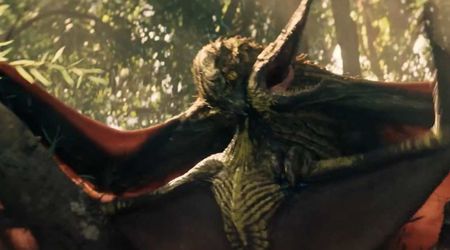'Star Trek': 5 reasons why 'Lower Decks' is most faithful adaptation of franchise's ideals of current era

The difference between 'Star Trek' and 'Star Wars' is all there in the title: one is about themes of good and evil, and wars set against the backdrop of the stars, and the other is exploration -- to boldly go where no man has gone before and to arrive at every new alien world with the simple message of, "We come in peace." When Gene Roddenberry first came up with the idea for 'Star Trek', he envisioned a utopic society where all were welcomed into the Federation, a global community of equals working towards the greater good. It's a message of peace that's at odds with today's need for blockbuster action, which is why out of the three 'Star Trek' shows currently in production, 'Lower Decks' is the only one that really sticks true to what makes 'Star Trek' what it is.
1. It believes in the Federation
With 'Discovery', we were introduced to a Federation embroiled in a Klingon war, one that was constantly pushed to take extreme measures in order to win the war and saved lives. The Federation was so dedicated to ruthless solutions that it did not even notice when an officer from the Dark Mirror universe took charge of one of their ships. 'Picard' wasn't much better -- it depicted a Federation that Jean-Luc Picard (Patrick Stewart) himself had lost faith in. The future continues to be bleak for the Federation...all the way into the future of the 32nd Century, where 'Discovery' Season 3 shows that the Federation has dissolved in the wake of a galaxy-wide disaster.
In 'Lower Decks', the Federation is still at its best. While it's not perfect, the ideals it espouses are still ones that every member of the USS Cerritos can look up to, and admire.
2. It respects the Lore
One of the biggest criticisms of 'Discovery' is the way its second season ruined establish lore by introducing its version of Spock (Ethan Peck), changing the logic-prioritizing half-Vulcan's backstory by introducing his history, and several time-travel elements that ultimately all ended in a confusing retcon. 'Lower Decks', in the meanwhile, does make fun of the 'Star Trek' lore but sticks to it, with each episode unpacking another aspect of the 'Star Trek' mythos.
We should note that while 'Picard' does great things with 'Star Trek' lore, we're penalizing it for making terrible use of the actual character, Lore (Brent Spiner) despite a season devoted to synthetic lifeforms.
3. Following the rules matters
Though the main lead of 'Lower Decks' is Beckett Mariner (Tawny Newsome), a character who despises the rules set down by the Federation, openly defying them nearly always lands her in more trouble. Mariner works best when she couples an unconventional approach to Starfleet guidelines, and her colleagues all benefit from established Starfleet protocol.
Both 'Picard' and 'Discovery' feature leads that have gone rogue -- one on a mutiny, and one resigning in disgust. While they're both eventually reinstated with full Starfleet honors, both Picard and Michael Burnham (Sonequa Martin-Green) make their way by ignoring all conventional Federation rules and doing what feels best to them.
4. It explores new territory without losing its identity
Both 'Discovery' and 'Picard' are shows that take a new approach to 'Star Trek' storytelling. 'Picard' explores a long-form unearthing of a conspiracy with a crew that isn't under Federation orders, while 'Discovery' gives us a 'Star Trek' blockbuster series with all the drama, special effects, and action that goes with that. While they both make for entertaining watches, they veer off significantly from the feel of a 'Star Trek' show.
'Lower Decks', on the other hand, is the very first 'Star Trek' animated comedy in history. But while it stays true to its format, it still captures the feel of a 'Star Trek' television show in a way that 'Discovery' and 'Picard' do not.
5. It stars nerds, not action heroes
The most important thing here, as harsh as it may sound, is that 'Lower Decks' is a show by nerd, for nerds, starring nerds. 'Discovery' is a blatant attempt to capture a more mainstream audience, featuring a lot more action-heavy scenes than usual, and we see the same in 'Picard'. In 'Lower Decks', characters are not defined by how well they can hold themselves in battle, but by how excited they are by Starfleet technology, by exploring space, and by the nitty-gritty of 'Star Trek that the fans love the franchise for.
All in all, while 'Discovery' and 'Picard' are both good 'Star Trek' shows in their own right, it's 'Lower Decks' that does the best job of keeping the original feel of 'Star Trek' alive in the current era of 'Star Trek' shows.










